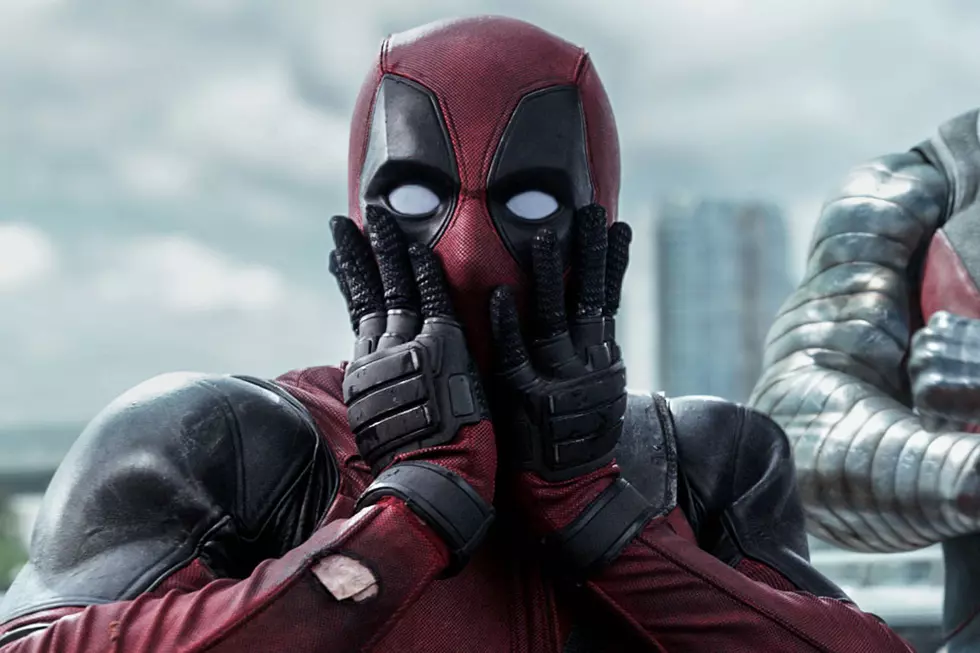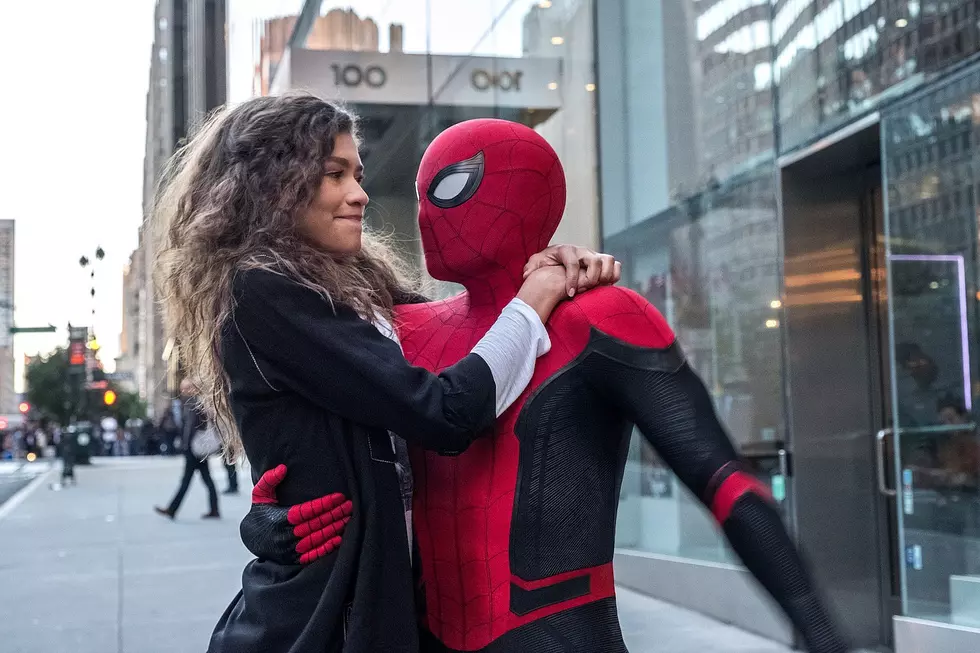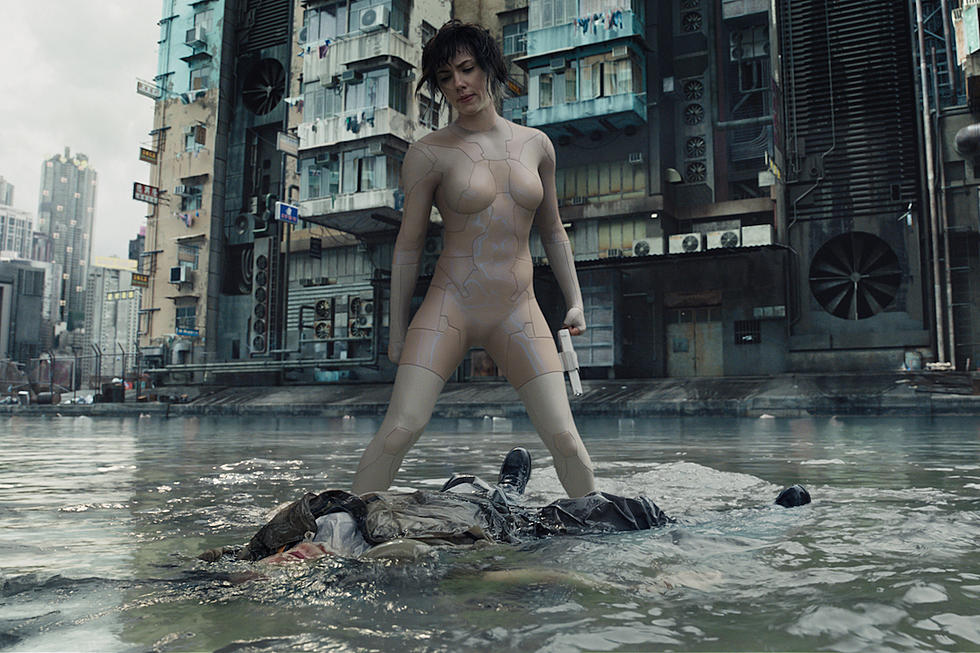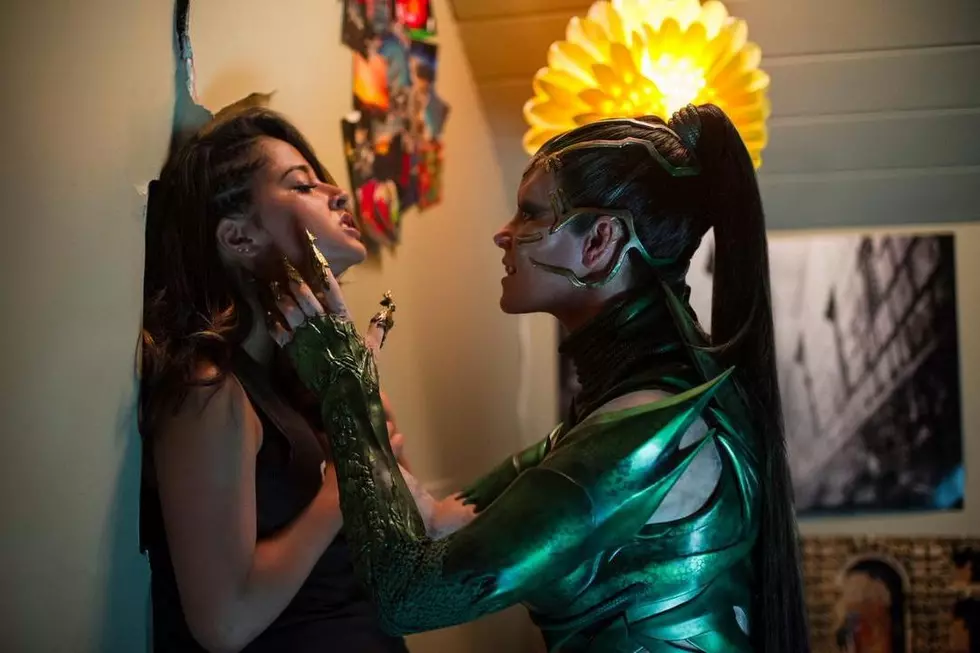
Comics Alliance Reviews ‘Nick Fury: Agent of S.H.I.E.L.D.’
So, what family obligation will you be ignoring to watch Marvel's Agents of S.H.I.E.L.D. tonight? Well, ComicsAlliance gives you permission to ignore the guilt: wedding anniversaries happen all the time; greatest moments in television history only happen once every fifteen years. To celebrate the newest greatest moment in television history, we hereby present our review of the original one: 1998's television film Nick Fury: Agent of S.H.I.E.L.D., written by David S. Goyer and starring the greatest actor in television history, the one and only David Hasselhoff. Read on if you can handle all the greatness.
First, a word of warning. Three seconds after the movie started, I genuinely thought I had made some terrible mistake, and was actually watching a lost episode of Baywatch. Like many venerated shows in television's eternal pantheon, Nick Fury: Agent of S.H.I.E.L.D. begins with the camera zooming over a body of water, and because David Hasselhoff is apparently the Gene Hackman of syndication, he gets billed above the title. It creates a moment of cognitive dissonance that may throw you for a loop. No, it's not that much like the opening sequence of Baywatch, but it's exactly like the opening sequence of Baywatch from an alternate dimension. So if you happen to watch it, there may actually be a moment, as a Mikado yellow "David Hasselhoff" hovers above the rushing water while the soundtrack rages with gated drums, when you find yourself in the same strange situation, questioning all you've come to accept about space, time, and even life itself. Just hang on, man. It'll pass.
When Baron Wolfgang Von Strucker's cryogenically-frozen body is stolen from something called "Trinity Base," Contessa Valentina -- played by Lisa Rinna before her lips reached mythic proportions and she starred in commercials for adult diapers -- implores an embittered Nick Fury to stop hitting concrete walls with pickaxes for no reason and come out of retirement to rejoin S.H.I.E.L.D. Of course, being the reluctant anti-hero, he doesn't want to, but once he hears that his old friend Clay Quartermain was killed in the attack, he relents. Now, it would have been much more convincing for the audience if they saw Quartermain for more than ten seconds, and he wasn't played by an actor who gave a performance that could be easily outdone by a reality star reading badly-scripted puns for a one-on-one with the camera. But hey, whatever gets you past the refusal of the call.
When Fury gets back to S.H.I.E.L.D., he discovers just how much things have changed in his absence: the bean-counters run the show; the new breed of Agent is some wobbly little half-man with clean fingernails, impeccable manners, and a funny accent; there's an agent with a neural implant that allows her to read minds (which is actually the coolest thing about the movie); and of course, Life Model Decoys, android copies of important operatives like Fury himself that look and think and act exactly like the original. Fury is out of place, a misfit, a cold warrior trying to operate in a world he no longer understands.
Soon, the who and why behind the theft of Baron Von Strucker's body becomes clear. The new leaders of Hydra, the sadistic twins Andrea and Werner Von Strucker, have taken their father's body so that the Nazi scientist Arnim Zola can reconstitute the "Death's Head" virus, a deadly contagion that lies dormant within Wolfgang's blood. With the virus active again, they threaten to unleash it on New York, unless the United States reaches their demand of one billion dollars.
Okay, there's a lot of wrong going on in Nick Fury: Agent of S.H.I.E.L.D., but let's admit that the idea of Von Strucker's body being a carrier for the "Death's Head" virus is pretty cool. People were just beginning to understand how frightening biological warfare was back then, and the idea of a Nazi super-pathogen establishes sufficiently high stakes. The problem is pretty much everything before that, after that, around it and on top of it. You know, those little things like budget, director, actors, and young Goyer's well-meaning script.
Though the Life Model Decoy is supposed to look and think and act exactly like real agents, when the audience is given a peek at Fury's LMD in-development, it looks like a Madame Tussaud's statue of Michael Knight accidentally left in the Arizona sun. It would be a minor issue if the LMD didn't come to play such a major part -- as you would expect, when introduced so prominently in the first act -- and it would have been great if the producers had something that could actually pass for anything other than a robot; something else besides this blank, nightmare Fury whose eyes can see only murder. I understand, it was 1998, and most of the budget probably went to comically-bulky computer screens, but this thing looks like David Hasselhoff's brain-dead brother after a bad fire and reconstructive surgery by someone with prosopagnosia.
There are occasionally some good lines, things that you could actually imagine that classic Nick Fury would have uttered in the pages of Jim Steranko's run. When Fury is asked if the rules at S.H.I.E.L.D. got to be too much for him, he responds, "For me, Kate, there never were any rules"; when he's informed that they need to obtain Andrea Von Strucker's blood so they can synthesize an anti-venom to save his life (long story), he retorts with the classic "I'll get that vampire's blood if I have to suck it from her neck." Those moment are rarities -- the rest is hackneyed, cliche dialogue performed by actors with charisma so low, it wouldn't even appear on the D&D scale.
If you can get past the "why is Knight Rider missing an eye?" disconnect, the Hoff actually does look like classic Nick Fury -- he's got the stubble, the build, skin so leathery, in India, to touch him would be forbidden. But he doesn't sound at all like he should. He pretends to smoke cigars, and tries to be tough, but he doesn't have the gruffness of voice or character that a man with a lifetime of war and dangerous sex should have. Classic Nick Fury should sound like Leonard Cohen with a throat full of hot glass; Hasselhoff sounds like Mitch Buchannon teaching Hobie how to pleasure a woman. As much as Hasselhoff really looks like a genuine Nick Fury, he doesn't have the grit in his performance to pull it off, and comes across like, well, a bad actor trying to play a tough guy.
But in a movie full of bad comic-to-movie transitions, the worst one is reserved for Dum-Dum. Timothy Aloysius Dugan, portrayed by Gary Chalk without the trademark mustache, looks like a hapless, desk-riding hump with two ex-wives, a can of Dinty Moore beef stew for dinner every night, and three months to go until retirement; a jar of mayonnaise in a "disillusioned cop" costume. Nobody calls him "Dum-Dum" or even "Sir" -- they all refer to him as just Timothy or Tim, and it's literally the saddest thing in this depressingly bad film.
The basic premise isn't bad at all -- Nick Fury comes out of retirement, sees S.H.I.E.L.D. has changed, has to save the world from a Nazi super weapon -- but it's not the type of story you use to introduce a character to America, and Goyer's dialogue is mostly awful, performed by mostly awful actors standing on awful sets. Nick Fury: Agent of S.H.I.E.L.D. is awful, the worst kind of low-budget, half-effort adaptations that all comics properties were once condemned to, just one notch above the seventies Captain America. The only way to enjoy it is ironically, but in this movie, even the quirkiest hipster would undoubtedly find an end to their capacity for ironic love, take a cold, hard look at themselves, and set their ALF t-shirts ablaze.
Even if Marvel's Agents of S.H.I.E.L.D. is awful, it could never be this type of awful. Nick Fury is its own special breed of awful: Hasselhawful.
More From ComicsAlliance






![The Odds Are Stacked And The Stakes Are High In ‘Nick Fury’ #1 [Preview]](http://townsquare.media/site/622/files/2017/03/Nick_Fury_1_Featured.png?w=980&q=75)


